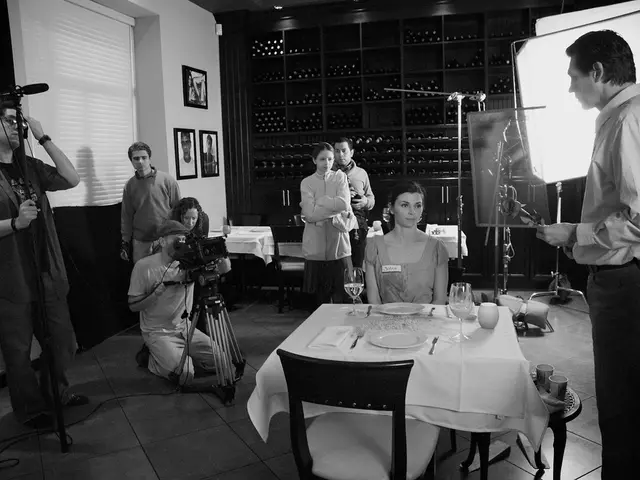"I'd Rather Pass" - The OG of the Absolute Refusal: Bartleby
Denial's Patriarch: An Examination of Bartleby's Life and Work
By Thomas SchmollMore InfoFacebookTwitterWhatsappEmailPrintCopy Link
Herman Melville penned a mesmerizing character with his tale "Bartleby, the Scrivener". And it's the very enigma of this story that makes it an everlasting classic, a timeless masterpiece of literature with themes echoing in our times and beyond.
Herman Melville left us two masterpieces that could not be more different in size; "Moby Dick" spans over a thousand pages, while "Bartleby" consists of only a few dozen. Despite the differences in length, both novels delve deep into the heart of human creation, exploring the intricacies and absurdities of human existence, and questioning the meaning of it all - without offering concrete answers.
A Man of Mystery
The enigmatic Bartleby, the story's titular character, has been puzzling readers for decades. Nicknamed the "original antagonist of total refusal", Bartleby's brief life remains shrouded in mystery. Often quoted line from the book, "I would prefer not to", encapsulates his approach to life. Bartleby never expresses his wants or desires, his past experiences or the reasons for his strange behavior. He remains an intriguing enigma.
A Fresh Take - Pubs Instead of Restaurants
Kampa Verlag has recently released a new German translation of the work, penned by Karl-Heinz Ott. What sets this version apart is that it uses contemporary language, staying more in tune with today's readers, as opposed to older translations. Instead of calling Bartleby's clothes greasy and smelling of restaurants, Ott uses the term "taverns". This adaptation enhances the accessibility of the text, making it even more appealing to readers who may find the original language difficulty.
Summary
"Bartleby" unfolds primarily in a notary's office on New York's Wall Street. The narrator, who shares his experiences, initially manages three employees but takes on Bartleby when he arrives with his mysterious behavior and absolute refusal to cooperate. Initial feelings of pity, understanding, anger, and dismay give way to a strange, inexplicable affection that neither the narrator nor the reader understands.
A Total No
Melville compels readers to reevaluate their interactions with people who differ from societal norms or confuse or repel them. The notary learns that Bartleby's stubborn refusal extends to his very existence, revealing an invisible wound that the notary, despite his best attempts, can't heal.
The tale ends with a pensive sigh, inviting readers to reflect on their own humanity and the impact they can have on others, as the notary admits his inability to comprehend Bartleby's suffering and concludes, "Ah, Bartleby! Ah, humanity!"
A Heroic Outcast
Although the meaning behind Bartleby's behavior remains obscure, the character stands as a symbol of resistance against societal norms, reigniting debates about individuality, existentialism, and the human condition. Readers are left to draw their own conclusions about Bartleby's nature and the role he plays in society - making for a thought-provoking experience that lingers long after reading.
References:
- Bartleby, the Scrivener: A Story of Wall Street - Wikipedia
- Bartleby, the Scrivener: A Story of Wall Street Analysis - Shmoop
- Bartleby, the Scrivener: A New Page-by-Page Translation - City Journal
- The Psychological Depths of Bartleby, the Scrivener - Google Books
- Bartleby, The Scrivener (1853) - Budrey's 100 Greatest Short Stories
Note: The provided references are not exhaustive, serving as supplementary insights rather than comprehensive coverage of the topic.
- The Commission, despite numerous discussions, has not yet adopted a decision on whether to release a modernGraphic Novel adaptation of "I'd Rather Pass" or publish it as a series of books focused on entertainment.
- Despite the Commission's indecision, avid readers eagerly await a potential comic book series or book collection, as they believe these formats would offer an engaging and accessible means to appreciate Melville's themes and explore the enigma of Bartleby.






